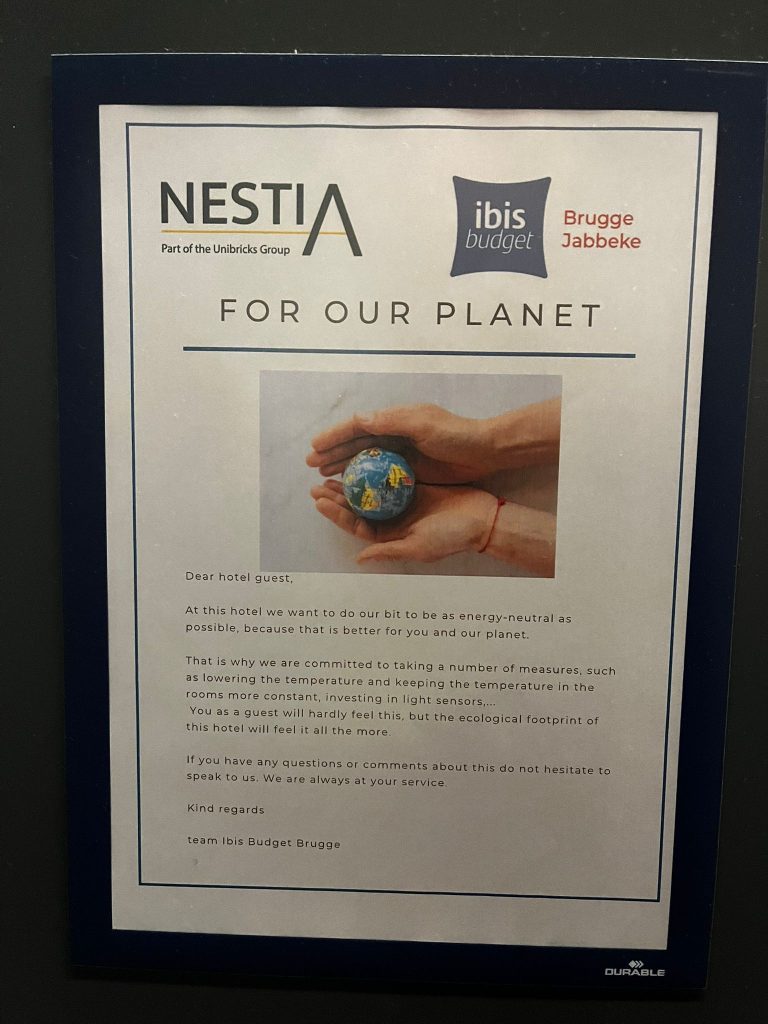
In today’s hospitality industry, sustainability is no longer a trend but a critical priority. As environmental concerns grow, travelers increasingly expect eco-friendly practices from their accommodations. Hotels, which consume massive resources in energy, water, and waste, hold a unique responsibility—and opportunity—to make impactful changes. From excessive single-use plastics to high energy consumption, hotels face challenges that contribute to carbon emissions, water scarcity, and ecosystem degradation.
Taking proactive steps toward sustainability addresses these issues and brings considerable benefits, from reducing operational costs to fostering guest loyalty and strengthening a hotel’s market position. Beyond financial incentives, a commitment to environmental stewardship signals to guests and the wider community that a hotel is invested in preserving the very destinations people travel to enjoy.
- 1 Why Travelers Prefer Eco-Friendly, Sustainable Hotels
- 2 Top Sustainable Practices for Eco-Friendly Hotels
- 2.0.1 1. Energy Management in Green Hotels
- 2.0.2 2. Water Conservation Techniques
- 2.0.3 3. Waste Management and Recycling for Hotels
- 2.0.4 4. Sustainable Sourcing of Local and Organic Products
- 2.0.5 5. Green Building Standards for Sustainable Hotels
- 2.0.6 6. Reducing Single-Use Plastics in Hotels
- 2.0.7 7. Eco-Friendly Transportation Options
- 2.0.8 8. Engaging Guests with Eco-Conscious Activities
- 3 Additional Measures for Enhanced Sustainability in Hotels
- 4 Future Trends in Sustainable Hospitality
- 5 Financial Returns on Hotel Sustainability Initiatives
- 6 Practical Tips for Guests to Support Sustainability During Their Stay
- 7 Travelers Prioritize Eco-Conscious Choices
Why Travelers Prefer Eco-Friendly, Sustainable Hotels
A growing number of travelers prioritize sustainable practices in their booking choices, with data underscoring this trend:
- Rising Demand for Sustainable Accommodations: A 2022 survey revealed that 78% of global travelers intended to stay at least once in eco-friendly or green accommodations in the upcoming year.
- Willingness to Pay More: According to Booking.com’s 2023 Sustainable Travel Report, 43% of travelers are willing to pay a premium for certified sustainable travel options.
- Influence on Booking Choices: The same report found that 73% of travelers are more likely to choose accommodations that advertise their sustainability practices.
- Generational Preferences: Younger travelers, particularly Gen Z (56%) and Millennials (51%), show a stronger preference for sustainable travel compared to Gen X (49%) and Baby Boomers (46%).
These statistics show that travelers are not only aware of but also prioritize sustainability in their accommodation choices. Hotels that adopt eco-friendly measures are poised to capture this eco-conscious market, building guest loyalty and securing a competitive edge.
Top Sustainable Practices for Eco-Friendly Hotels
1. Energy Management in Green Hotels
- Action: Transition to renewable energy sources like solar or wind, install energy-efficient lighting and appliances, and incorporate smart thermostats.
- Example: Hotel Punta Islita in Costa Rica operates primarily on solar energy, significantly reducing its carbon footprint.
- Return: Cuts energy costs by 20-40%, reduces greenhouse emissions, and attracts eco-conscious travelers.
2. Water Conservation Techniques
- Action: Install low-flow showerheads, faucets, and toilets; implement water recycling; offer towel and linen reuse programs.
- Example: Las Vegas’ Bellagio uses treated greywater to irrigate its gardens.
- Return: Water-saving measures can lower usage by up to 30%, translating to substantial cost savings, particularly in high-water-rate regions.
3. Waste Management and Recycling for Hotels
- Action: Set up waste segregation, aim for zero landfill waste, and use biodegradable products.
- Example: Hilton Tokyo Odaiba recycles plastics, food waste, and cardboard, while donating surplus food to local charities.
- Return: Reduces waste disposal costs and improves the hotel’s reputation with sustainably-minded guests.
4. Sustainable Sourcing of Local and Organic Products
- Action: Source local, organic produce; partner with sustainable suppliers; prioritize recyclable packaging.
- Example: Ritz-Carlton in Colorado sources produce from local farms within a 100-mile radius.
- Return: Supports local economies, reduces emissions, and serves as a unique selling point for eco-tourists.
5. Green Building Standards for Sustainable Hotels
- Action: Build or retrofit using green practices like natural lighting, efficient insulation, and sustainable materials.
- Example: Proximity Hotel in North Carolina meets LEED Platinum standards with features like solar-heated water and high-performance windows.
- Return: Reduces energy by 25%, lowers operational costs, and enhances property value.
6. Reducing Single-Use Plastics in Hotels
- Action: Replace plastic toiletries with refillable dispensers; use compostable or reusable straws; switch to glass or paper water bottles.
- Example: Marriott International replaced single-use plastic toiletries with refillable bottles.
- Return: Reduces plastic waste, saves on purchasing costs, and aligns with global plastic regulations.
7. Eco-Friendly Transportation Options
- Action: Provide bicycles, EV charging stations, and alternative fuel shuttles; promote public transport.
- Example: Fairmont Waterfront Hotel in Vancouver offers complimentary bikes for guests.
- Return: Enhances guest experience, reduces carbon emissions, and attracts eco-conscious travelers.
8. Engaging Guests with Eco-Conscious Activities
- Action: Inform guests on sustainable practices and offer eco-friendly activities like beach clean-ups or nature hikes.
- Example: Banyan Tree Resorts encourage guests to participate in reforestation projects.
- Return: Builds brand loyalty, creates memorable experiences, and cultivates a community of eco-conscious travelers.
Additional Measures for Enhanced Sustainability in Hotels

For hotels looking to go above and beyond, here are a few advanced sustainability practices:
- Green Roofs and Vertical Gardens: Green roofs help reduce cooling costs and improve air quality. Example: Parkroyal on Pickering in Singapore.
- On-Site Organic Gardens: Growing organic produce on-site supports a farm-to-table experience and reduces transport emissions. Example: Fairmont Waterfront in Vancouver has a rooftop garden and apiary.
- Biogas Production: Installing a biogas plant allows hotels to turn food waste into energy, reducing reliance on fossil fuels. Example: Alila Villas Uluwatu in Bali uses biogas technology in their kitchen.
Future Trends in Sustainable Hospitality

Carbon-Neutral and Water-Positive Properties
New initiatives aim to make hotels not only carbon-neutral but water-positive, meaning they return more water than they consume. Marriott’s carbon neutrality goal is a leading example, showing commitment to climate-conscious travel.
Circular Economy Initiatives
Circular economy models are emerging, such as using composted food waste in hotel gardens or repurposing linens into cleaning cloths, reducing resource waste.
AI and IoT in Hotel Resource Management
AI-driven energy management systems adjust heating, cooling, and lighting based on occupancy and weather, significantly cutting resource use. Hotels like the Mandarin Oriental in Las Vegas are already seeing savings from this technology.
Financial Returns on Hotel Sustainability Initiatives
Sustainable practices bring substantial financial returns, benefiting hotels in multiple ways:
- Energy Savings: Energy-efficient lighting and smart thermostats can cut energy costs by 30%.
- Water Conservation: Water-saving fixtures reduce water bills by 20-40%.
- Waste Management: Effective waste programs reduce disposal costs, allowing for reinvestment in guest services.
- Guest Loyalty and Revenue Growth: Eco-conscious travelers are willing to pay more for sustainable accommodations, helping hotels secure a loyal market and revenue growth.
Practical Tips for Guests to Support Sustainability During Their Stay
For guests who want to participate in eco-friendly initiatives during their stay, here are some tips:
- Opt for Digital Over Paper: Choose digital check-in, receipts, and room information to reduce paper waste.
- Limit Housekeeping Services: Consider opting for reduced housekeeping to save water and energy.
- Bring Reusable Items: Avoid single-use plastics by bringing a reusable water bottle, bag, and containers.
- Use In-Room Recycling Bins: Help hotels recycle by separating plastics and paper in provided bins.
- Support Local and Eco-Friendly Tours: Choose eco-certified or locally-run tours, which often have a smaller environmental impact and support the local community.
Travelers Prioritize Eco-Conscious Choices
Hotels have the power to transform the tourism industry into a force for good by embracing true sustainability. These practices not only address urgent environmental issues but also appeal to a growing market of travelers who prioritize eco-conscious choices. From energy efficiency to waste management, each measure enhances guest experience, lowers operational costs, and builds brand loyalty. Sustainable hotels aren’t just cutting costs; they’re securing a place in the future of tourism by aligning with the values of a modern, eco-minded market.
